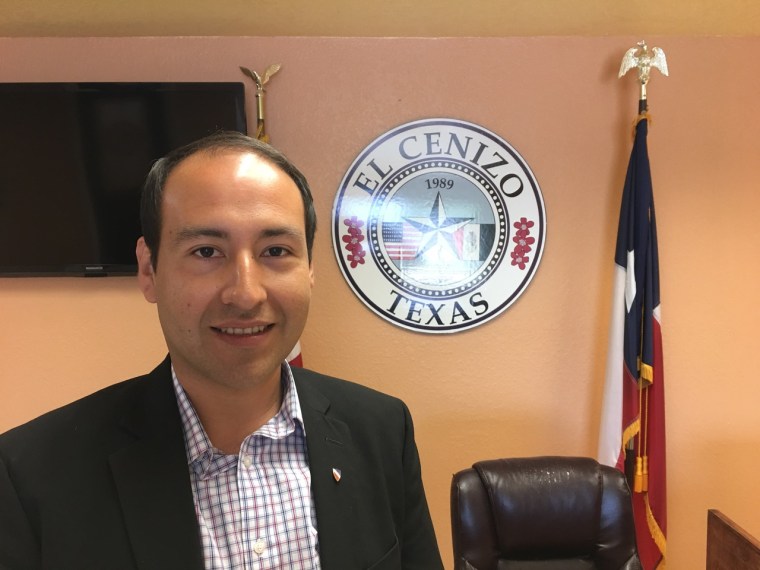
EL CENIZO, Texas — The mayor of a small town in Texas has taken the first shot in a legal battle against a controversial new immigration enforcement law recently signed by the state's governor.
Raul Reyes, mayor of El Cenizo, is shaping up as the face of the opposition to SB4, Texas’ version of a “papers, please” law. He says this fight is about civil and human rights, saying it's “a reckless, dangerous, and discriminatory law.”
In some ways Reyes, who is 34, could be any small town mayor, as he points out a local river and worries about litter.
“This is actually a popular fishing spot,” Reyes told NBC Latino on a recent visit. He glanced down at the riverbank, where a few beer cans and a plastic bag had been abandoned, and sighed. “I wish people wouldn’t leave their trash here.”
The river in question is the Rio Grande, which marks the U.S./Mexico border and abuts the western edge of El Cenizo. The city’s location and its involvement in the SB4 lawsuit put it literally and figuratively in the middle of the national debate over sanctuary city laws.
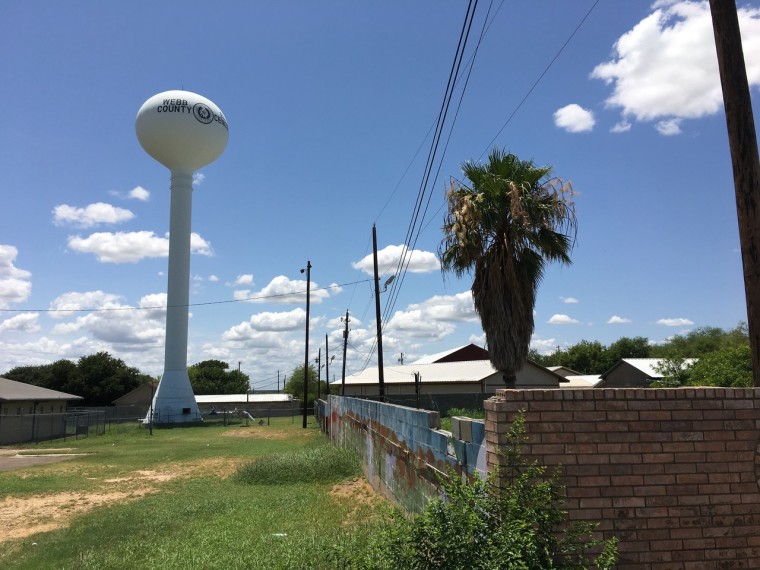
Reyes is the lead plaintiff in the suit against Texas, brought in conjunction with the League of United Latin American Citizens (LULAC). The legal challenge alleges that SB4 — which goes into effect September 1 — is coercive and unconstitutional.
SB 4 allows local law enforcement officials to question anyone who they detain about their immigration status. The law would force local law enforcement to comply with federal immigration detainer requests, and carries penalties for non-compliance, including fines, jail time, and potential removal from office.
“This bill will help keep dangerous criminals off our streets and protect innocent lives,” said a spokesman for Governor Abbott in a statement. “For every ounce of criticism, there is a pound of praise from Texans who simply want laws to keep them safe.”
Reyes does not see things that way. While he estimates that 15-20 percent of his city’s residents are undocumented, he is concerned about the law’s effect on all of his constituents.
Reyes’ town of roughly 3300 residents is 99 percent Latino, and he fears that the law will lead to racial profiling and discrimination.
“We are a small town in the nowhere of South Texas but I truly believe we are doing the right thing in taking a stand,” he said. “This is bigger than me, bigger than El Cenizo, even bigger than Texas. If this (case) goes to the Supreme Court, which we anticipate that it will, it will be a landmark decision.”
LULAC Chief Executive Officer Brent A. Wilkes said that El Cenizo is a logical plaintiff in the SB4 lawsuit because the city has long had sanctuary policies in place; in 1999 the city passed a “safe haven” ordinance banning local officials from asking about immigration status.
RELATED: Texas Immigration Law Contends With State's Racial History
“We think that they’ve been doing this for so long (sanctuary policies), that it adds to our chances of success in court,” he said. “El Cenizo has a track record, and they have a population that would fall into the category of those potentially affected by the law.”
Supporters of the law state that it is not about targeting a group but about enforcing the deportation of those in the country illegally.
During the bill's deliberations, State Rep. Jason Villalba, a Republican from Dallas, said he was aware of the state's history of discrimination against Latinos; he said his immigrant relatives were subjected to slur words and derogatory names, as The Texas Tribune reported. But Villalba said the bill was about enforcing the law.
"We have this bill, because people in our communities, who we care about, feel unsafe," said Villalba during the bill's deliberations.
Reyes is aware of the risks that SB4 presents to small communities like his. The steep financial penalties for noncompliance with the law’s provisions could wipe out his city’s entire budget in a just a few weeks.
RELATED: San Antonio Sues Texas Over SB4 Immigration Law
Reyes was not always so politically minded. In fact, he laughed when recounting his childhood ambition.
“We grew up in the same neighborhood in Corpus Christi as Selena, so she was my idol and I was a big fan,” he said. “So back then, I envisioned myself wanting to become a famous singer — then I realized that I have no talent in singing.”
Reyes was raised by a single mother who moved him and his four younger brothers to El Cenizo in 1992.
Intrigued by public service, Reyes first ran for mayor before he was old enough to legally drink, and lost. When he ran again and was elected in 2004 at age 21, he was then the youngest mayor in the city and state’s history.
At the time, the city had unpaved streets, no parks, no fire or police department, and no library. “We had pretty much nothing,” Reyes recalled. He is currently in his seventh term, making him the longest-serving mayor in the city’s history.
In person, Reyes is earnest and thoughtful, and greets constituents with a friendly embrace. “Como estás?” he exclaimed to a resident stopping by City Hall.
The job of mayor pays just $100 a month, so Reyes also runs a tax preparation service and a consulting business. He will receive his master’s degree in public administration in December from Texas A & M International University.
El Cenizo is a former colonia, the name given to small, economically distressed towns along the border that often lack basic services such as potable water and sewage systems. According to Census data, the median household income in El Cenizo is about $21,000.
Located 16 miles south of Laredo and 25 miles from Nuevo Laredo in Mexico, El Cenizo is the kind of place where people describe themselves as ni de aquí, ni de allá, which translates to neither from here (the U.S.) nor from there (Mexico).
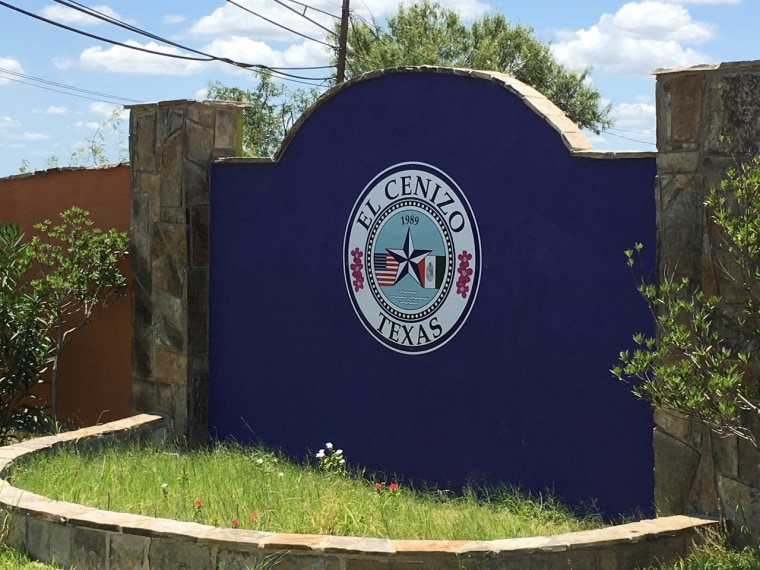
The city, whose motto is “Two Cultures, One Great City,” is a half-square mile area with brightly colored homes and horses grazing in weedy lots. The street names reflect the overwhelmingly Hispanic population: Morales, Rodriguez, Valdez.
As if symbolizing the shadow of immigration enforcement, just a few miles outside town sits the barbed wire-enclosed Webb County Detention Facility. A sign on the road to El Cenizo warns, “Hitchhikers may be escaping inmates.”
RELATED: Opinion: Calling Immigration on Latinos Protesting SB4 is Racial Profiling
With the SB4 lawsuit, Reyes is tugging El Cenizo into the national spotlight. The same week that he met with NBC Latino, Reyes was awaiting reporters from The Washington Post and the German magazine Der Speigel.
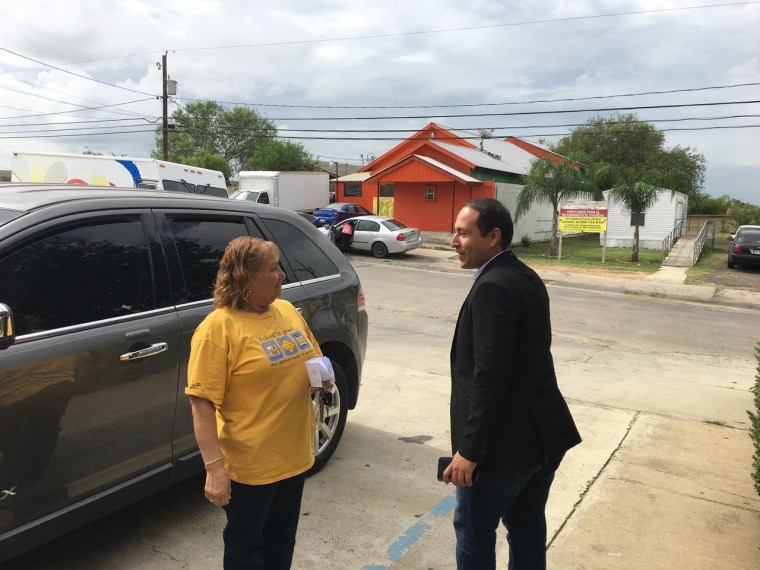
In the aftermath of Governor Abbott signing SB4, the ACLU of Texas issued a travel advisory for the state.
“This is not telling people to boycott Texas, or not to come,” said Astrid Dominguez, policy strategist for the ACLU of Texas. “Our reasoning is to let people know exactly what is going on. We are informing people that if they come to Texas, they might be profiled; their constitutional rights might be violated. People should know what they might encounter when they visit Texas.”
SB4 has proven a contentious issue in Texas. Over Memorial Day weekend, protests at the Texas state legislature led to threats of violence by lawmakers. More recently, cities such as San Antonio have sued over SB4 as well.
As a result of his new higher public profile, Reyes acknowledged receiving negative comments on social media. Still, he is proud of his work on local infrastructure projects; in his years as mayor, all of the city streets were paved. But he is against President Trump’s plan for a border wall, favoring a virtual, technology-based barrier instead.
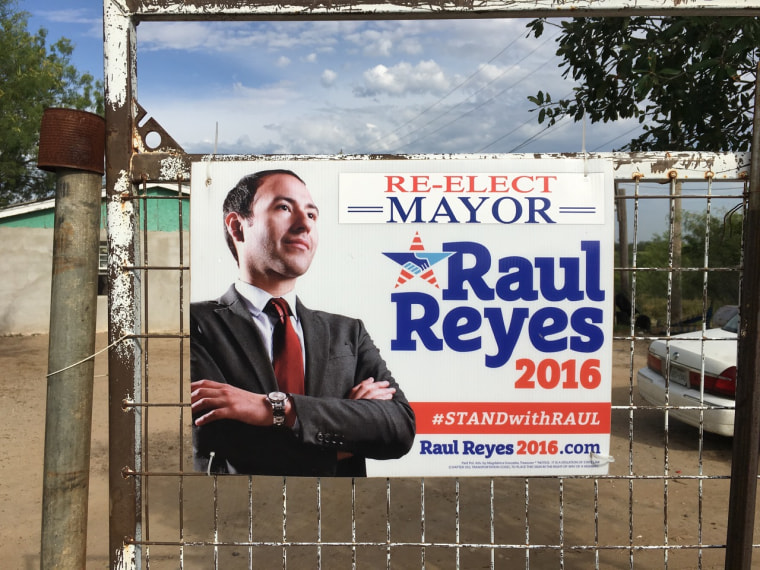
Reyes does not intend to run for another term as mayor, because his mother is battling breast cancer and he wants to devote more time to helping care for her. However, he is not done with politics; someday he hopes to run for governor of Texas.
In his city’s namesake, Reyes even sees a kind of inspiration. El Cenizo, he explained, is the name of a purple sage plant native to Texas.
“If you look at it, it starts out very ashy and insignificant,” he said. “Then when it blossoms, it blooms into a lilac-colored flower – and it is beautiful.”
(Note: The story's author, NBC contributor Raul A. Reyes, is not related to Mayor Raul Reyes.)
